
ICAS Bulletin (online ISSN 2836-3418, print ISSN 2836-340X) is published every other week throughout the year at 1919 M St NW, Suite 310, Washington, DC 20036.
The online version of ICAS Bulletin can be found at chinaus-icas.org/bulletins/.
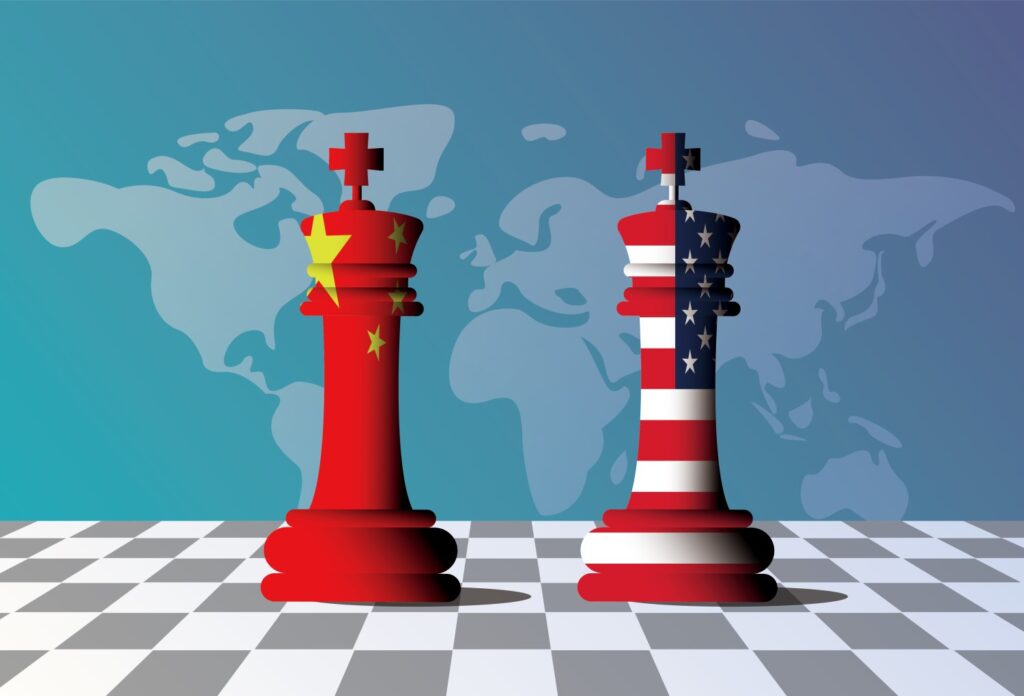
– TikTok employees report being largely indifferent to the U.S. election’s impact on the app, seeing little hope from either candidate due to TikTok’s Chinese ties. Most expect prolonged court battles and believe their job security is not immediately at risk, regardless of the political outcome.
– With the upcoming election approaching, presidential nominee Donald Trump’s proposed tariffs have left U.S. farmers wary, as they fear the repeat of past trade wars with China. While some farmers appreciate his policies on taxes and deregulation, many worry that increased tariffs could harm agricultural exports and lead to billions in losses if China retaliates.
– The size of China’s domestic stimulus may depend on the U.S. election outcome, with analysts predicting a larger package if Trump wins due to potential tariff hikes. Beijing faces internal economic challenges, but the stimulus could focus more on tech and local infrastructure than direct consumer aid.
– During a briefing a Chinese official explains hopes that the U.S. will maintain consistent climate policies and international cooperation, regardless of the election outcome.
Associated News References:
“Tiktok Employees Shrug Off The US Election,” Wired, November 5
“U.S. Farmers Brace For New Trump Trade Wars Amid Tariff Threats,” The New York Times, November 4
“China Gears Up For A Big Week As Markets Await U.S. Elections And Stimulus Details,” CNBC, November 3
“China Hopes US Will Continue Climate Change Collaboration Whoever Wins Election, Official Says,” Reuters, November 1
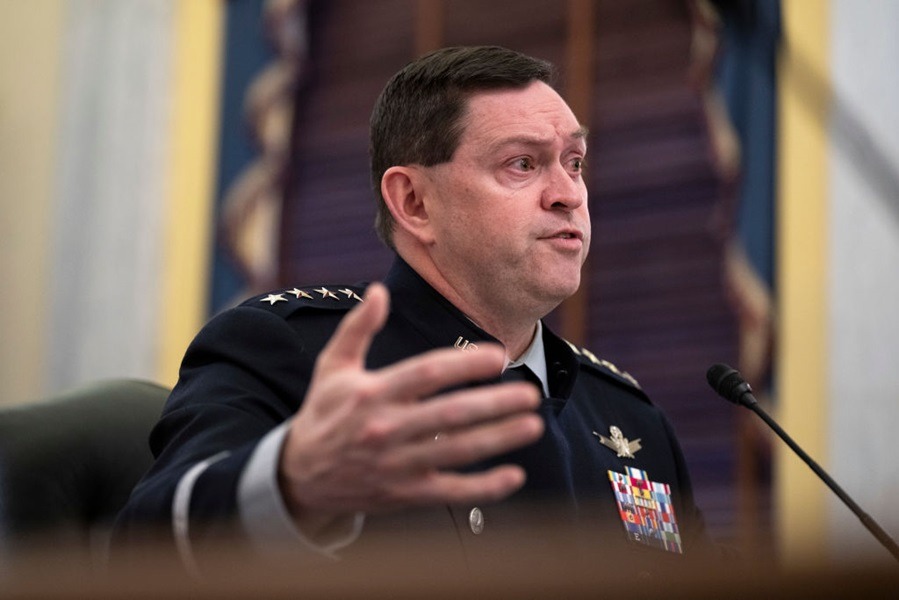
– The U.S. reports that it is closely monitoring Russia-China military cooperation in the Arctic, with recent joint activities raising security concerns. The new Ambassador-at-Large for Arctic Affairs, Michael Sfraga, called for stronger alliances as both nations pursue Arctic resources and shipping routes.
– U.S. Space Force chief General B. Chance Saltzman warned in an interview that China’s rapid development of space-based military systems poses a greater threat than Russia’s space capabilities. He notes that the U.S. is strengthening international collaboration through initiatives like Combined Space Operations to counteract these growing threats.
– After North Korean soldiers were seen alongside Russia’s fighting against Ukraine, U.S. officials urged China to curb North Korea’s support for Russia in Ukraine, hoping Beijing’s concerns about the partnership will lead it to act. American officials fear the activity could draw Europe into East Asian security issues.
– China filed a diplomatic complaint with the U.S. over $2 billion in weapons sales to Taiwan, vowing to take “necessary measures” to protect its sovereignty. Taiwan welcomed the sale, while China urged the U.S. to cease actions it claims threaten peace in the Taiwan Strait.
– In response to China’s advanced missile capabilities, the U.S. Navy plans to equip ships with Patriot interceptor missiles to counter potential hypersonic threats.
Associated News References:
“US Envoy Sees Some ‘Concerning Signals’ In Russia-China Military Cooperation In Arctic,” Reuters, November 1
“China’s ‘Mind-Boggling’ Space Capabilities Worry US, Says Space Force Chief,” Politico, October 31
“U.S. Turns To China To Stop North Korean Troops From Fighting For Russia,” The New York Times, October 31
“China Vows ‘countermeasures’ After $2 Billion Us Arms Sale To Taiwan,” Voice of America, October 26
“Fearing China’s Hypersonic Weapons, US Navy Seeks To Arm Ships With Patriot Missiles,” Reuters, October 25
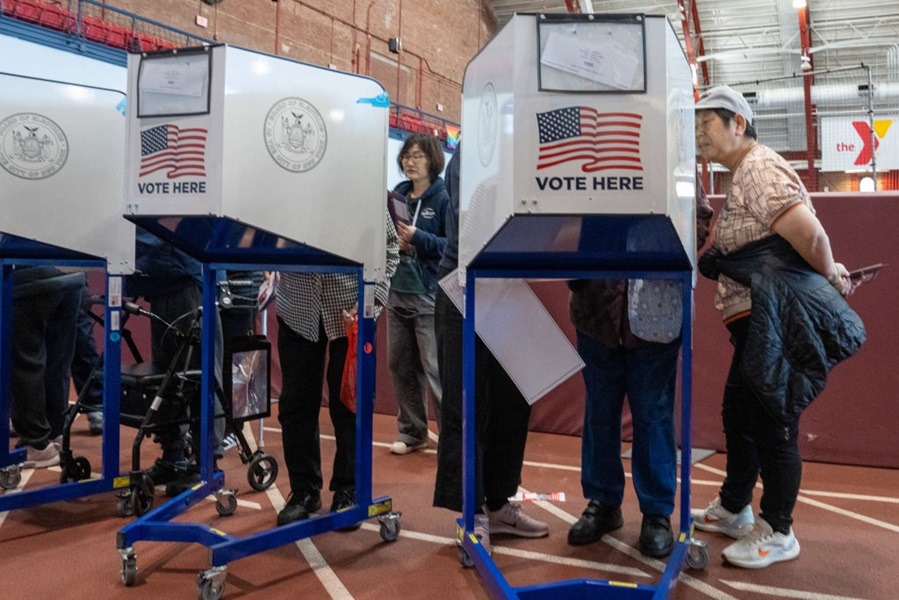
– China signaled a commitment to working with the U.S. under “mutual respect” if Trump is elected, though experts warn his win could escalate U.S.-China tensions in trade, technology, and security.
– After being largely quiet on the U.S. General Election, on Monday, Chinese state media and social media picked up the “chaos” story again, focusing largely on the influence of billionaires. Social media users express pessimism about either candidate benefiting China, while most avoided taking stances on who may win the presidential election.
– Republican candidate Donald Trump, speaking at a Pittsburgh rally one day before the U.S. General Election, proposed implementing 25% tariffs on goods from Mexico and China if they do not take stronger actions to reduce the flow of fentanyl into the U.S.
– On Election Day, China reaffirmed its stance of noninterference in U.S. affairs and expressed hope for constructive ties with the next administration. Meanwhile, the FBI warned of foreign interference efforts from Russia and Iran as tensions rose with China over a recent U.S. arms package for Taiwan.
– Elon Musk’s support for Trump, despite Trump’s anti-China stance, is drawing attention in China, where Musk’s business ties could face scrutiny.
– In China, interest in the U.S. election is muted, with most assuming that U.S.-China tensions will persist regardless of the winner. While Trump’s unpredictability adds risk, some say, Harris is expected to continue Biden’s firm approach, as Beijing focuses on managing ongoing rivalry and economic strain.
Associated News References:
“China Will Work With US On Basis Of Mutual Respect, Foreign Ministry Says,” Reuters, November 6
“Chinese Media Breaks Silence On ‘unprecedented Chaos’ Of US Vote,” Bloomberg, November 6
“Trump Warns, If Elected, He’ll Impose Tariffs On Mexico, China Over Fentanyl,” Reuters, November 5
“China Issues Election Message To Trump And Harris,” Newsweek, November 5
“Elon Musk’s Influence Over Trump Is Being Closely Watched By Beijing,” NBC News, November 4
“China’s Watching The US Election – But Doesn’t See Much Hope For Better Ties,” CNN, October 31

– As noted in its third-quarter revenue report which beat market expectations, Amazon Inc.’s push to offer low-cost essentials like toothpaste aims to counter competition from China-based rivals Shein and Temu, despite lower average selling prices as it brings consumers back more frequently. Leveraging its local warehouses, Amazon enhances quick delivery, though it faces price competition from U.S. retailers.
– Apple Inc. reported weaker revenue growth in China, affecting its global outlook as the U.S. company faces local competition and regulatory challenges. Strong iPhone sales in the U.S. helped, but other product lines underperformed in China, a critical market.
– After recovering from a 2019 accounting scandal, China’s Luckin Coffee now outpaces Starbucks in Chinese revenue and is looking to expand into the U.S. market.
– Apple’s iPhone exports from India surged by a third, reaching nearly $6 billion in the first half of the fiscal year, as the U.S. company continues to successfully diversify manufacturing away from China.
– Increasing consumer frugality in China over recent months is boosting domestic brands like Proya, while U.S. giant Starbucks and other global brands like L’Oreal are seeing declining sales as Chinese shoppers favor affordable, local options.
– Starbucks reported a 3% drop in quarterly revenue and a 24% decline in earnings, prompting a suspension of its 2025 guidance as new CEO Brian Niccol prepares to restrategize. Sales in both the U.S. and China fell due to decreased foot traffic and heightened peer competition from companies like Luckin Coffee.
Associated News References:
“Amazon’s Plan To Tackle Temu, Shein? Sell More Toothpaste,” Reuters, November 1
“Apple Sparks Concerns With Tepid Forecast, China Weakness,” Bloomberg, November 1
“Luckin Coffee, The Buzzy Chain That Outsells Starbucks In China, Reportedly Plans A U.S. Expansion,” Fortune Asia, October 29
“Apple Ships $6 Billion of iPhones From India in Big China Shift,” Bloomberg, October 28
“Western Brands Are Losing More Ground to Cheaper Chinese Rivals,” Bloomberg, October 25
“Starbucks Shares Drop As Preliminary Q4 Results Show Declining Sales In US, China,” Yahoo Finance, October 23

– U.S. semiconductor firms, responding to tighter regulations, are urging suppliers to phase out Chinese components or risk losing vendor status. Meanwhile, some Chinese suppliers are establishing ventures in third countries to retain U.S. market access.
– The U.S. Treasury Department issued a rule to restrict American investments in China’s AI, chips, and quantum computing sectors with the goal being to curb China’s military tech advancements. Set to take effect on January 2, the rule mandates notifications for relevant transactions and includes substantial penalties for violations.
– China’s Cyber Security Association called for a security review of Intel company products, alleging there are vulnerabilities that could pose risks to national security.
– Taiwan-based chipmaker TSMC’s new Arizona plant has achieved higher chip production yields than its facilities in Taiwan, marking progress in U.S. semiconductor manufacturing. The facility is part of TSMC’s $6.6 billion government-backed expansion, with volume production expected by early 2025.
– National Security Adviser Jake Sullivan defended U.S. subsidies and export curbs targeting China at the IMF, which are aimed at protecting American industries from another “China shock.” Sullivan emphasized a selective, high-security approach for sensitive technologies, despite concerns from allies and global trade risks highlighted by the IMF.
Associated News References:
“U.S. Chip Toolmakers Move To Cut China From Supply Chains,” The Wall Street Journal, November 4
“Treasury Issues Rule To Block US Investors From Helping China Develop Advanced Military Technology,” AP News, October 29
“Intel Gets Caught Up In The U.S.-China Rivalry,” The Wire China, October 27
“Tsmc’s Arizona Chip Production Yields Surpass Taiwan’s In Win For US Push,” Bloomberg, October 24
“Biden Trade Curbs Helped Stop Another China Shock, Sullivan Says,” Bloomberg, October 23
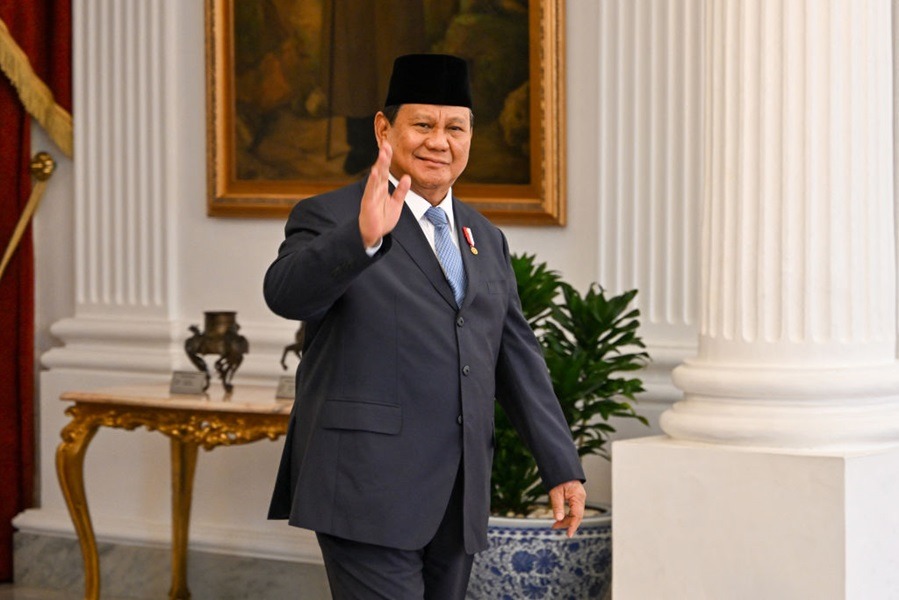
“China’s Premier Defends Free Trade On Eve Of US Presidential Election,” Financial Times, November 5
“Chinese Logistics Operators Are Getting Into U.S. Warehousing,” The Wall Street Journal, November 4
“Chinese Solar Firms Go Where Us Tariffs Don’t Reach,” Reuters, November 3
“U.S. To Expand National-Security Reviews Of Real-Estate Deals Near Military Bases,” The Wall Street Journal, November 1
“China Pivot From US Farm Imports Bolsters It Against Trade War Risks,” Reuters, November 1
“U.S. Bans Entry Of Esquel Group’s Products Over Alleged Uyghur Labor,” UPI, October 31
“Largest U.S. Drone Manufacturer Says It Will Need To Ration Batteries For Customers After Sanctions By China,” Forbes, October 31
“US Released A Chinese Detainee To Free Imprisoned American,” Politico, October 30
“Exclusive: China Considers Over $1.4 Trillion In Extra Debt Over Next Few Years,” Reuters, October 29
“Exclusive: China’s Xi Pressed Biden To Alter Language On Taiwan,” Reuters, October 29
“Indonesia’s Prabowo To Visit China And US In First Foreign Trip, Newspaper Says,” Reuters, October 29
“Meg Whitman’s Mission in Africa: American Tech Over Chinese,” Bloomberg, October 28
“American Views Of China Hit Record Low, Poll Finds, As Animosity Grows,” The Washington Post, October 24
“Exclusive: Moon Sample Talks Show Space Engagement By Rivals Us And China,” Reuters, October 23
“U.S., China Trade Tariffs Escalating Would Be ‘costly For Everybody,’ IMF Deputy Director Says,” CNBC, October 23
“Chinese Self-Driving Startup Weride Files For $119 Mln U.S. IPO,” Reuters, October 23
The ICAS 2024 Annual Conference will be held on Thursday, December 12, 2024!
The Institute for China-America Studies is excited to host its full-day Annual Conference—in conjunction with a celebration of the tenth anniversary of its founding—on Thursday, December 12, 2024 in Downtown Washington, D.C.!
Full information regarding this anticipatory event, to include the list of over two dozen experts in U.S.-China relations gathering to discuss current and future actions in this complex field, will be announced soon!
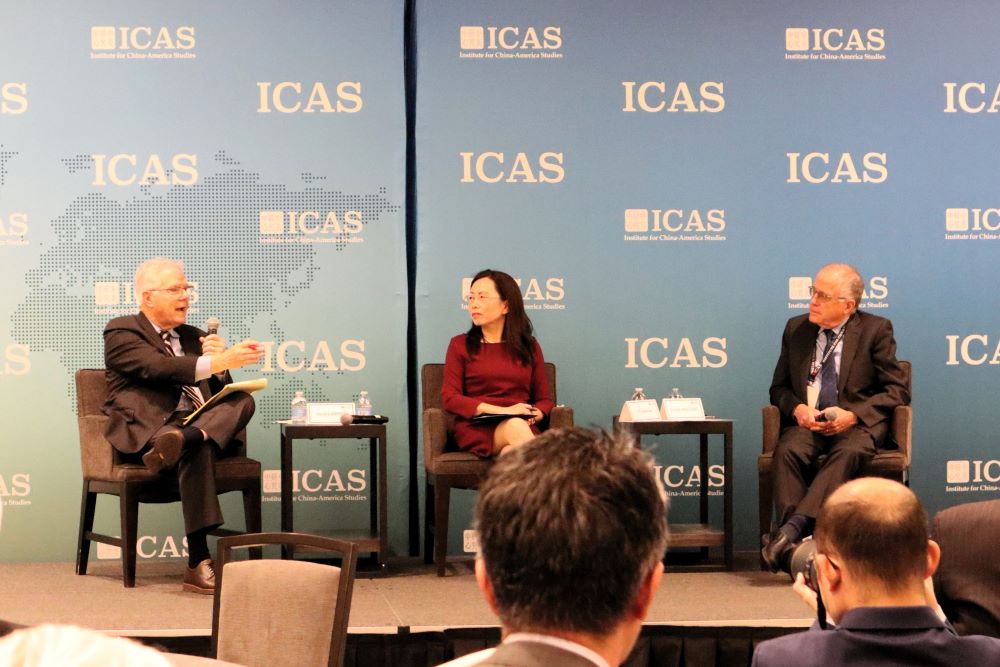
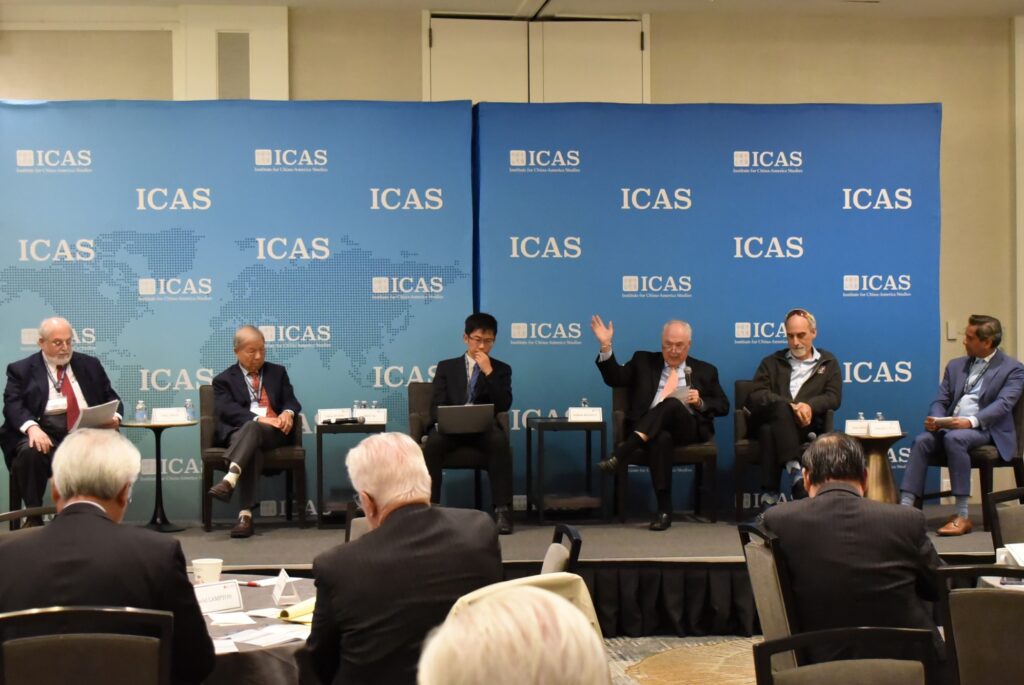
Reflection from the 2024 Arctic Circle Assembly: Charting the Future of Arctic Governance
By Nong Hong
October 22, 2024
The Arctic Circle Assembly, held from October 17-19, 2024, in Reykjavík, Iceland, attracted over 2,500 participants, including government leaders, academics, indigenous representatives, and business figures, solidifying its status as the world’s largest annual event dedicated to Arctic affairs. The 2024 edition expanded its scope with new initiatives, such as the Arctic Circle Business Forum, and took a more integrated approach to scientific and cultural cooperation. These additions built upon the foundations laid in 2023 while addressing evolving geopolitical and environmental challenges. The Assembly emphasized key issues such as Arctic governance, climate change, and economic opportunities, featuring more than 700 speakers across 250 sessions.
A central feature of the event was the “Polar Dialogue,” which extended the discussions initiated at the 2023 Paris Polar Summit. This dialogue focused on promoting scientific collaboration and policymaking for polar and ice-covered regions worldwide, including the Arctic, Antarctic, and the Himalayas. High-profile political figures and leading scientists participated in the discussions, aiming to bridge the gap between scientific knowledge and policy action to address pressing challenges, particularly those related to climate change and environmental conservation…
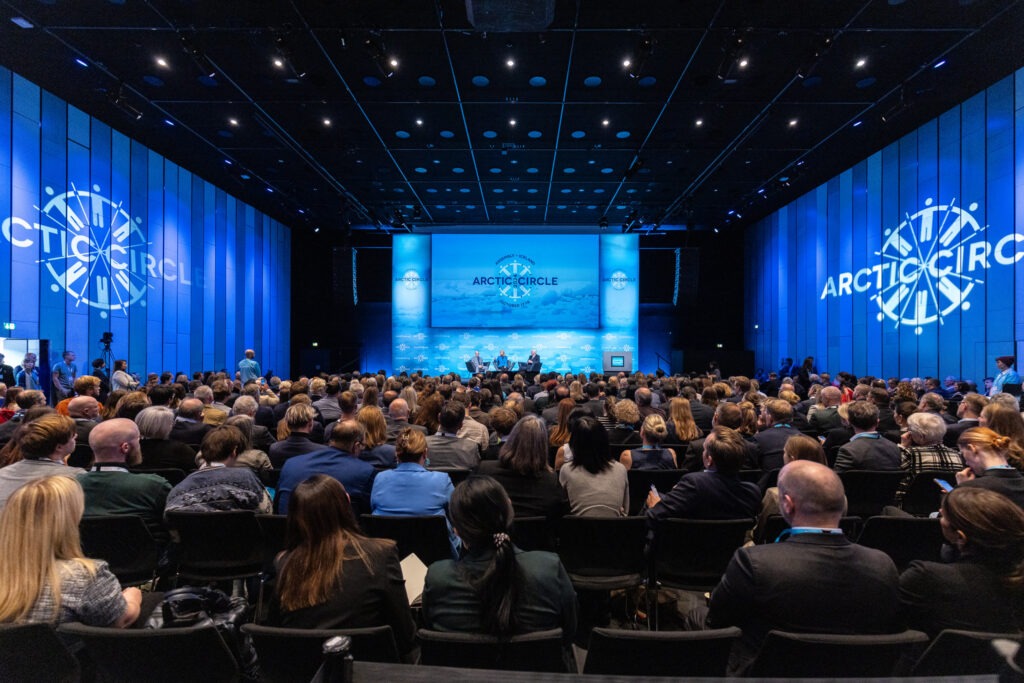
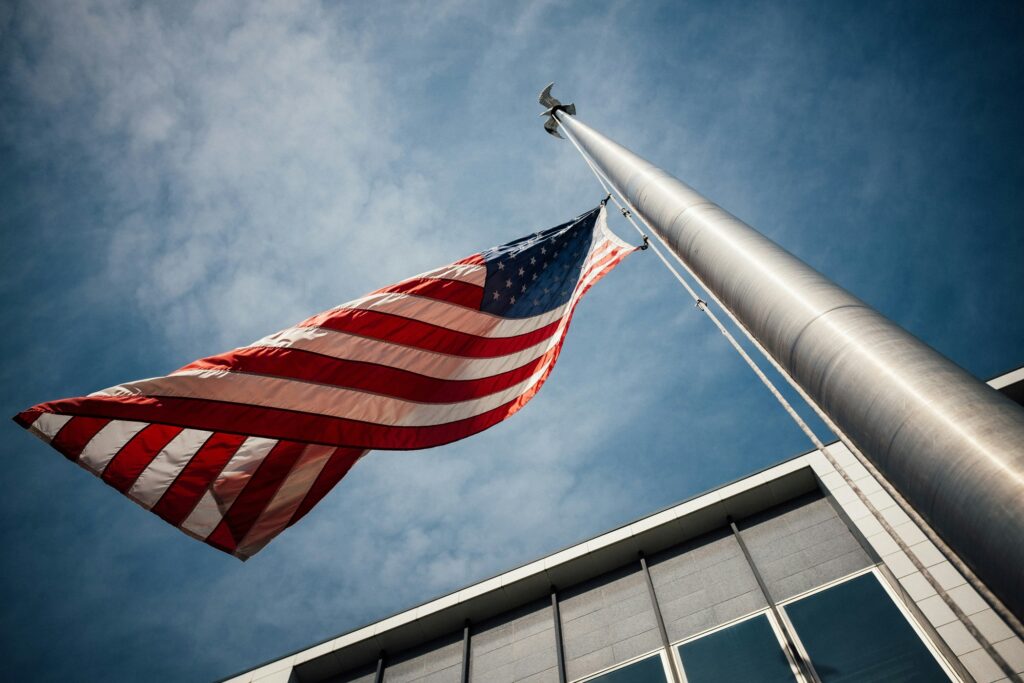
Harris or Trump: The US’ broad brushstrokes on China and Beijing’s preferred choice
By Sourabh Gupta
November 4, 2024
“Are we adversaries, or partners? That is the number one question for us,” President Xi Jinping queried President Joe Biden during his meeting last November at the Filoli Estate, a grand country house and garden set on rolling grounds in Woodside, California. Returning to the question five months later in his phone conversation with Biden, Xi asserted that the two sides needed to first get the “issue of strategic perception” right, “just like the first button of a shirt that must be put right.”
Be it a Harris administration or a second Trump administration, the first button is not likely to be worn as per Xi’s liking.
This piece was originally released by Pacific Forum on November 4, 2024 as part of an opinion series.
On Sunday, October 24, 2024, Senior Fellow Sourabh Gupta was interviewed by CGTN America on the 2024 BRICS Summit.
On Thursday, October 28, 2024, Senior Fellow Sourabh Gupta was interviewed by CGTN America The Heat on the IMF-World Bank Annual Meetings and the global economy.
On Friday, October 29, 2024, Senior Fellow Sourabh Gupta was interviewed by CGTN America on the outlook for the economic ramifications of Japan’s general election verdict.
On Friday, October 29, 2024, Senior Fellow Sourabh Gupta was interviewed by CGTN America The Heat on the results of Japan’s recent election.
On Saturday, November 2, 2024, Senior Fellow Sourabh Gupta was interviewed by South China Morning Post on the future of critical minerals competition in US-China relations.
On Tuesday, November 5, 2024, Senior Fellow Sourabh Gupta was interviewed by South China Morning Post on the implications of the US presidential election for Asia policies.
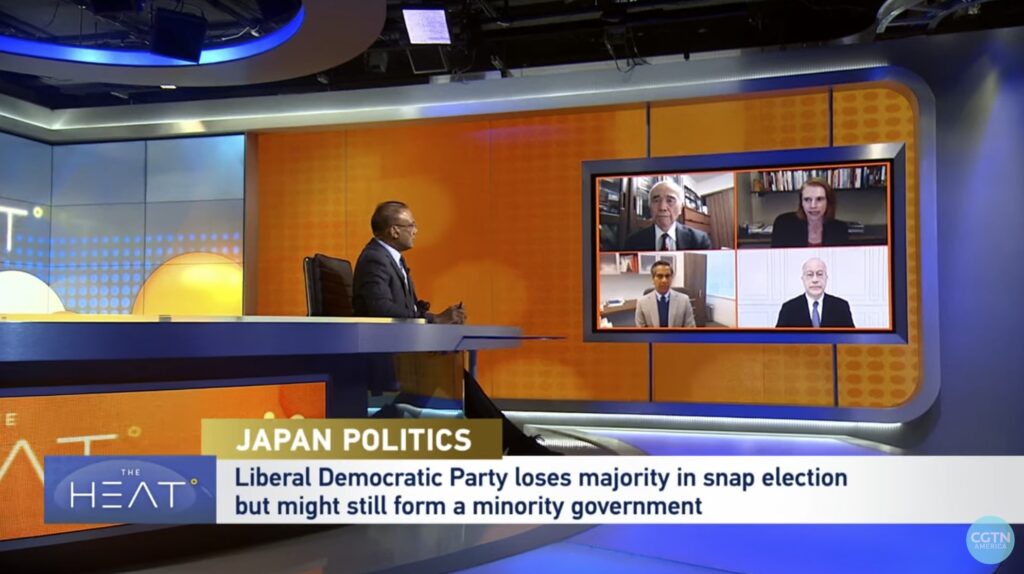
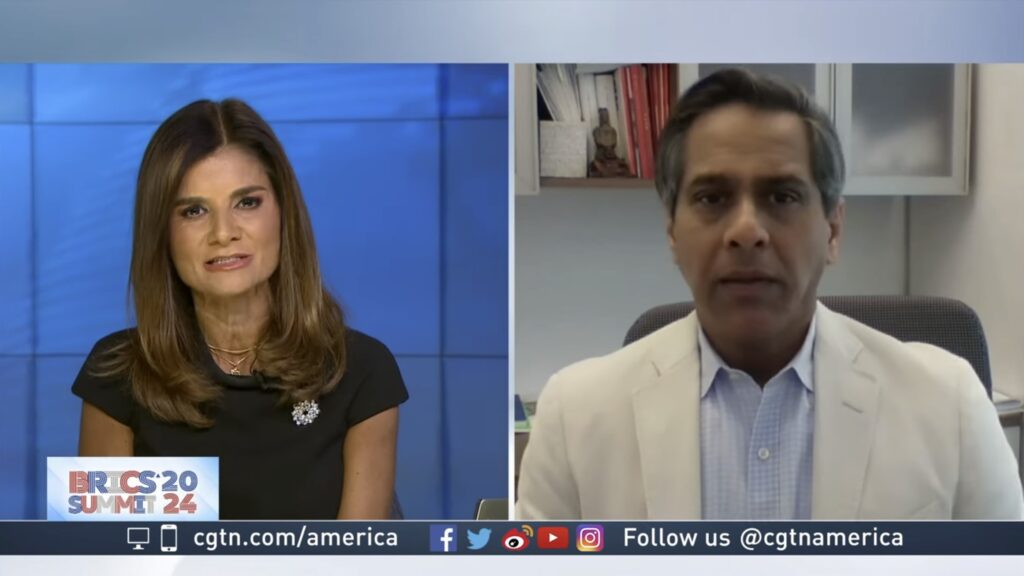

The Institute for China-America Studies is an independent nonprofit, nonpartisan research organization dedicated to strengthening the understanding of U.S.-China relations through expert analysis and practical policy solutions.
1919 M St. NW Suite 310,
Washington, DC 20036
icas@chinaus-icas.org
(202) 968-0595
© 2025 INSTITUTE FOR CHINA-AMERICA STUDIES. ALL RIGHTS RESERVED.